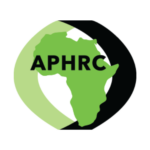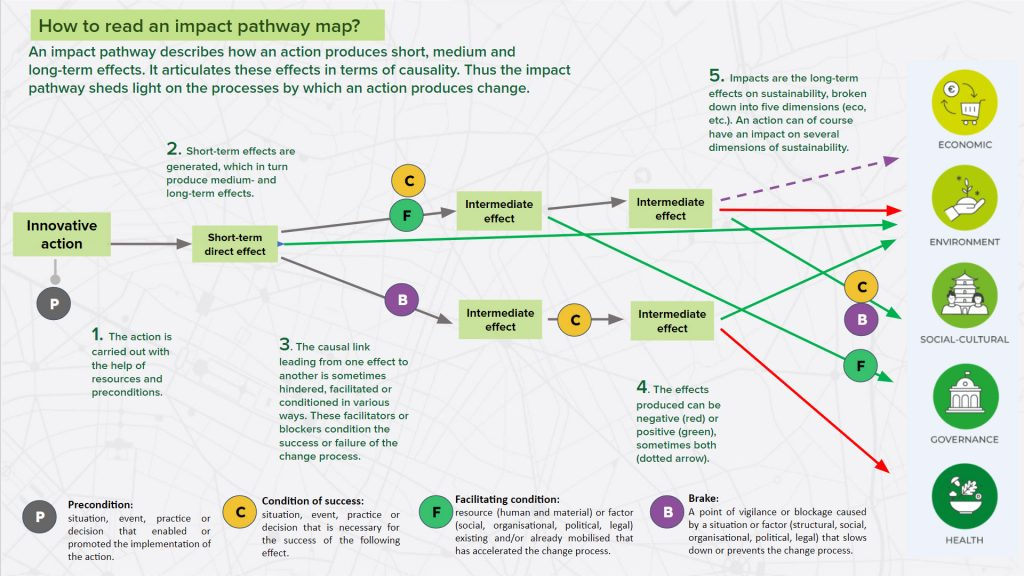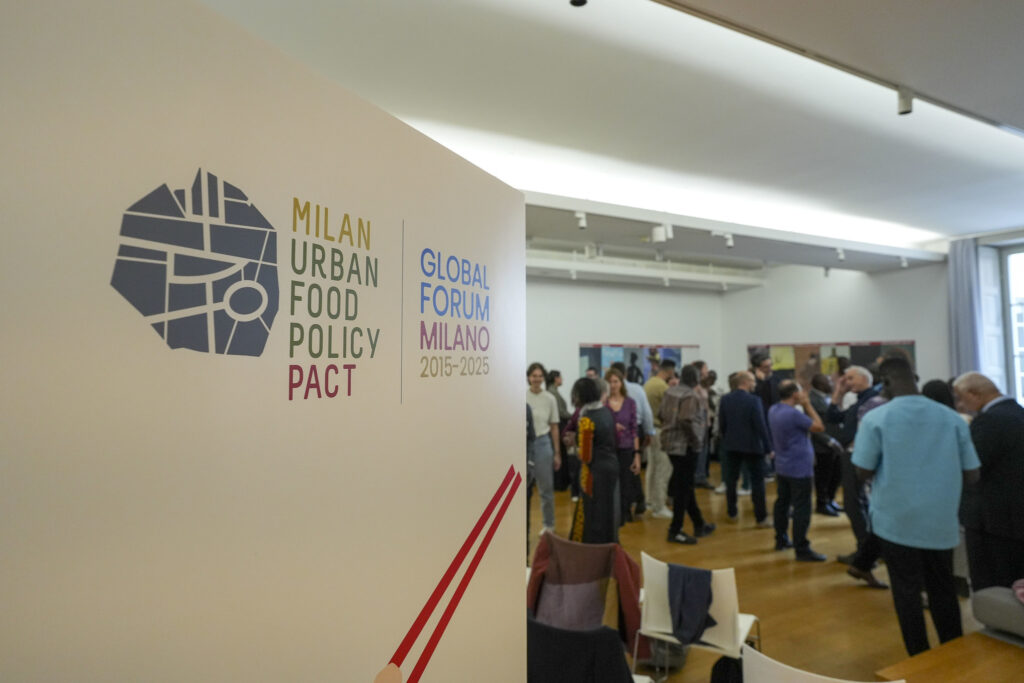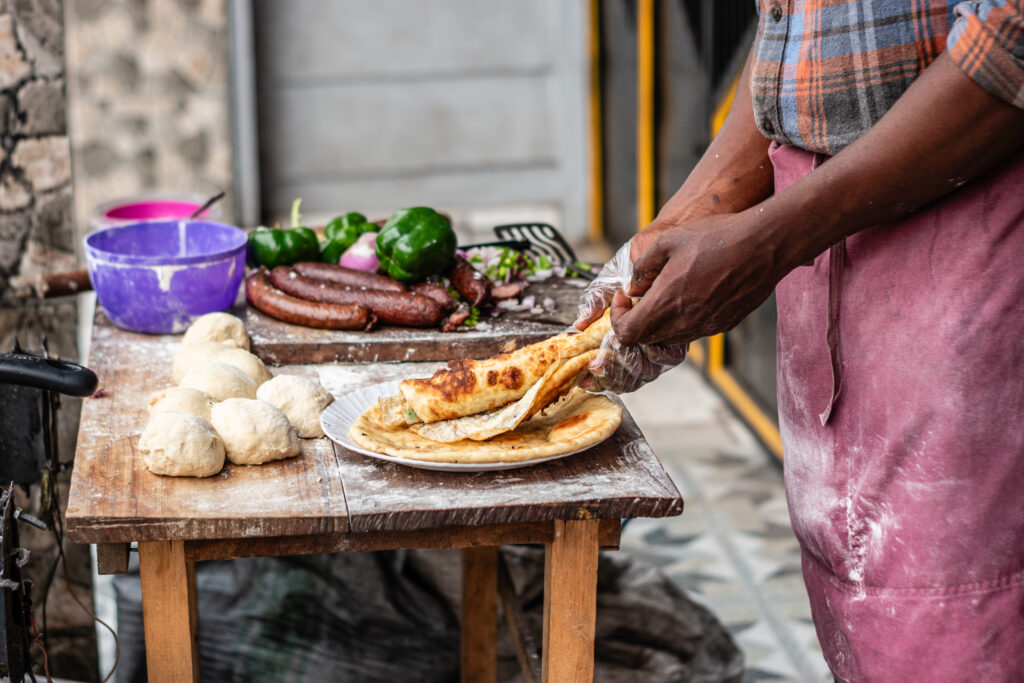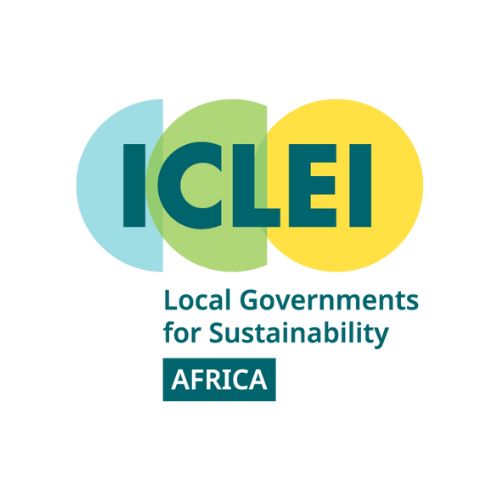Home » Explore the latest project news » Impact pathways methodology within the food environment
Impact pathways methodology within the food environment
Experiments of Tunis and Cape Town
Author: Esther DIAZ PEREZ – CIRAD; Contributor: Antonina MUTORO – APHRC
What is URBAL?
URBAL (Urban Driven Innovations for Sustainable Food Systems) is a qualitative and participatory methodology conceived to identify and map the impact pathways of innovations in food systems, taking into account the food system sustainability dimensions (i.e. Social, Economic, Environmental, Health/Nutrition and Governance). URBAL is based on the participatory methodology used to build causal models of malnutrition, in order to capture the complexity of its determinants. This method makes it possible to clarify the steps required to achieve the desired objective and highlights the unexpected or perverse effects of the actions undertaken. The outlining results of the process are expected to be useful for decision-makers, researchers, practitioners and community members in their work towards sustainable food systems.
URBAL methodology was tested by analysing 15 urban food innovations within 9 countries worldwide and the project team elaborated hands-on open-access guidelines (URBAL guide) that include practical resources to apply the methodology and organise specific training to support practitioners willing to use it.
URBAL methodology is adaptable to users’ and innovations’ specificities, needs and objectives. Thus, the URBAL sustainability dimension diagram is neither fixed nor prescriptive and can be adapted, refined, or edited according to the innovation context and how the impact mapping process unfolds (URBAL guide).
One key aspect of the success of using the URBAL methodology is that participants of the process (usually through a workshop) are diverse and represent different groups that will be affected by or involved in the studied intervention. Another key aspect is the selection of the implementation activities to be analysed during the workshop, which needs to be very specific and grasp the transformation or change to be brought by the interventions.
Furthermore, the URBAL participatory process can also be useful to collectively identify and select key indicators that will contribute to the assessment of the studied interventions, in regards to the sustainability of the food system.
Even if URBAL methodology has so far been specifically tested in ex-post settings (i.e. to analyse already implemented interventions), it is adaptable and can be used in ex-ante settings (i.e. with innovations still at the conception, or early implementation phases); which has been the case for the interventions in the AfriFOODlinks project.
How was URBAL used in AfriFOODlinks?
The AfriFOODlinks project aims to transform urban food environments towards more sustainability through the implementation of real-world experiments in 5 Hub Cities (Capetown, Kisumu, Mbale, Ouagadougou and Tunis). The URBAL methodology was used ex-ante in Tunis and Capetown to analyse the planned interventions, and collectively build impact pathways, gathering the expected changes, outcomes and potential impacts that selected activities could lead to. In the process, potential barriers, facilitators and success conditions were also identified. The participatory workshops involved a diversity of relevant stakeholders and were organised with the technical support offered by the URBAL team at CIRAD.
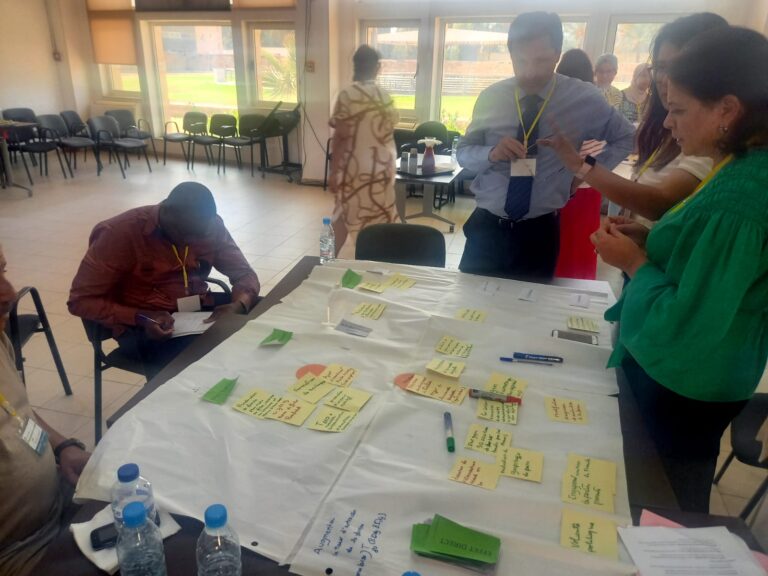
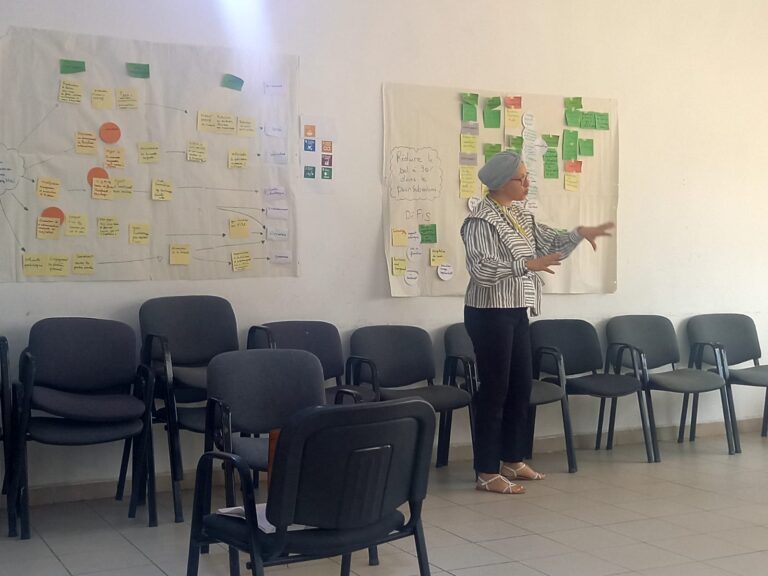
The Tunis team held the workshop in September 2024 to identify the impact pathways of two interventions:
- Reformulation of the subsidized bread baguette to lower the salt content by 30% and increase protein, fiber and nutrients, to promote access to more nutritious and healthier food for all.
- Setting up a community vegetable garden for year-round vegetable availability for target users.
The group working on the bread reformulation (which included public officials from health, commerce, millers, bakers, civil society and academia) analysed three related implementation activities: the salt reduction; the increase in the flour extraction rate; and the communication/awareness raising campaign. Three tables were set up, one per activity with one facilitator each, responsible for summarising the key points arising from the discussions. Stakeholders were divided into three groups that rotated across the three tables to ensure they provided specific feedback for each activity, which enabled mapping the impact pathways.
The group working on the community garden intervention (which included public officials from agriculture, gene bank, civil society and academia) decided to stay as a unique group all along, and analysed the two selected activities collectively, with the support of two facilitators: technical support provided by agroecology experts and collective definition of the garden’s operating rules. Once the analysis of both activities was completed, the impact pathways resulting from the discussion were displayed and participants were invited to review, reposition certain cards, clarify some causal relationships and draw links.
In Cape Town, the workshop took place in November 2024 and it focused on the interventions planned in Langa with informal grilled meat traders. The stakeholders (which included public officials from urban planning, waste, health and economic development, meat traders and civil society) discussed four selected implementation activities: a mobile lighting system for the food stalls using solar panels; organic waste disposal buckets; finance literacy to formalise businesses and Smiley site clean-up (wood, ashes and waste) and wood storage facilities. Participants were organised into four groups that rotated among the four activities (one table and one facilitator per activity) and could provide their feedback to draw the impact pathways.
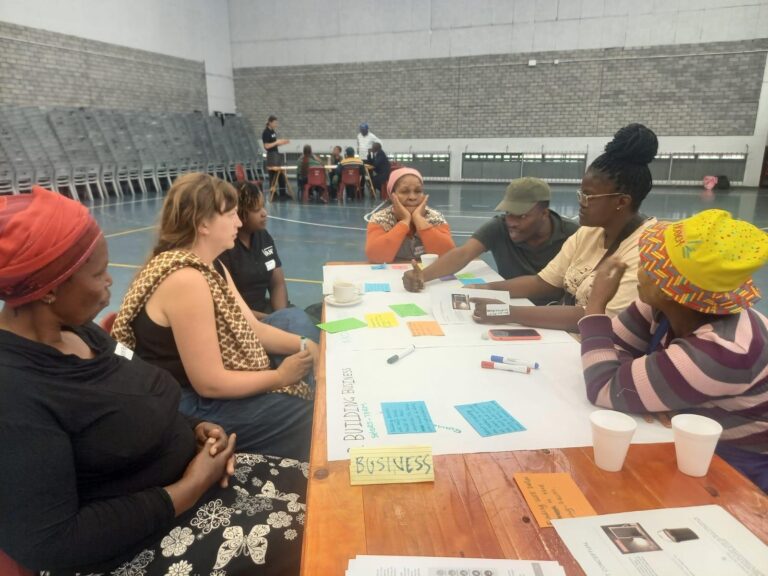
The results of that consultative process, inherent to the URBAL methodology, were deemed to be useful for AfriFOODlinks Hub Cities’ teams and provided a more thorough understanding of the overall context of the interventions. The remaining three Hub Cities (Kisumu, Mbale and Ouagadougou) were present during these workshops to practically learn how to use the URBAL methodology, and plans are in place to organize URBAL workshops in those cities later on. In addition, an URBAL webinar will be organised for the ten African Sharing Cities of AfriFOODlinks, so that they can use the methodology to analyse the impact pathways of their pilot projects.
Learnings:
The ex-ante nature of the process could be somehow limiting for participants, because of the difficulty in projecting the expected changes and impacts that the interventions may have in future; but still, interesting insights were gathered. The URBAL methodology:
- Facilitated the identification and analysis of barriers (e.g. political instability, power relations), negative effects (e.g. additional burden for meat traders, more competition for certain players), facilitators (e.g. support from the municipality) and conditions for success (e.g. users’ engagement and mobilisation) at an early stage, leaving room to still integrate them in the formulation of the interventions ;
- Provided an opportunity for the team to define and activate possible solutions to the identified barriers and negative effects ;
- Enhanced connections of the project team with other stakeholders and among stakeholders themselves, and facilitated building networking at early stages of the action ;
- Contributed to having a shared understanding of the intervention with the concerned stakeholders and created ownership towards it and the related activities ;
- Created a governance space where all the voices are listened to and taken into account, and hidden effects or circumstances that could go unnoticed come to light (e.g. conflict of interest) ;
- Enabled the identification of indicators of achievement (direct effects), results (intermediate) or impact (beyond the project’s duration), supporting the monitoring and evaluation process that will report on the process of change initiated by the actions ;
- Allowed capitalising on the potential, negative and positive impacts of the interventions.
For further information on URBAL methodology: https://www.urbalfood.org
References
Intoppa B., Valette E. ; 2022, Collaborative approaches to the identification of evaluation indicators using the URBAL framework. So what ? Policy Brief nº 22. Unesco Chair in World Food Systems.
Urbal guide : https://urbal-sustainablefood.guide/
Explore
"Uncategorized"



